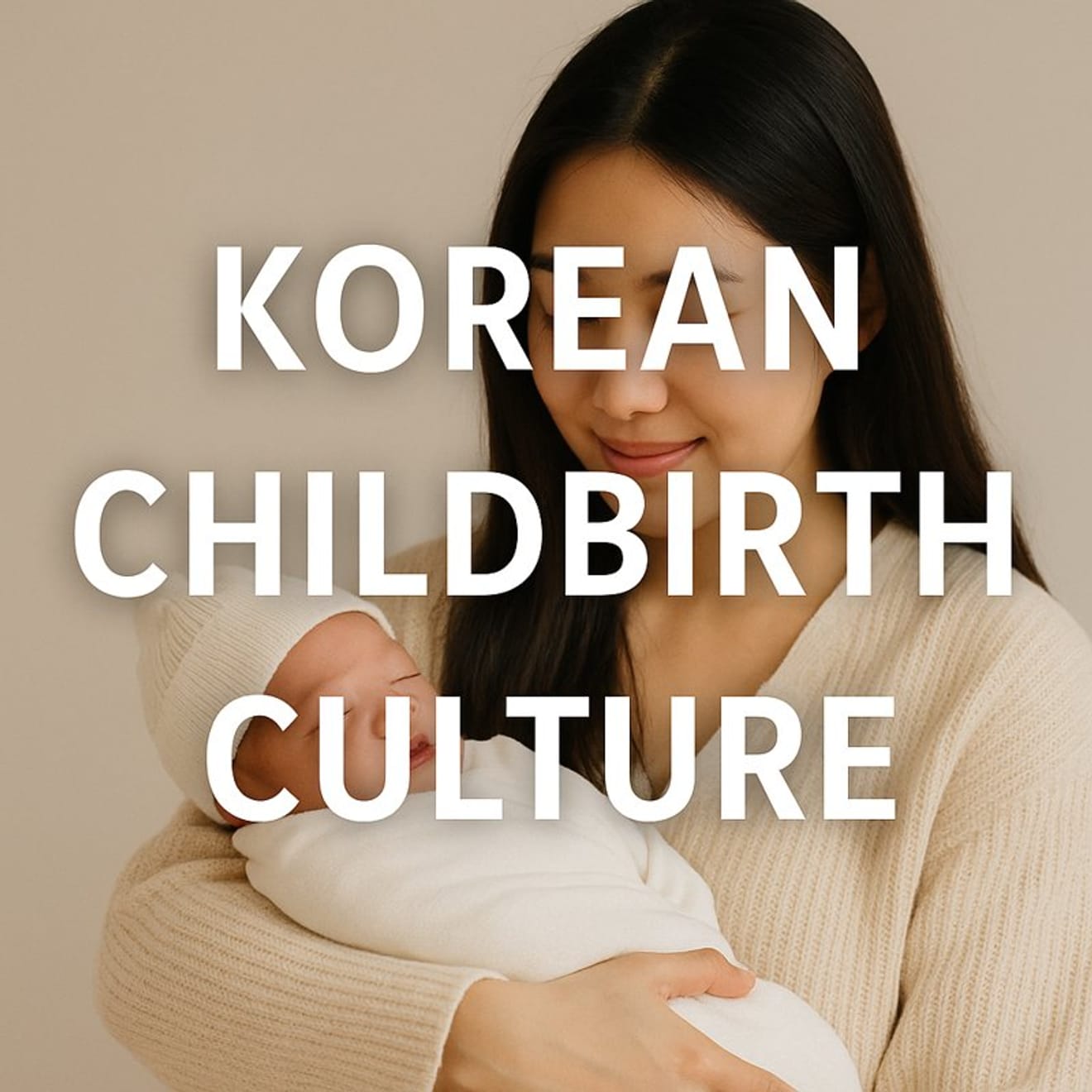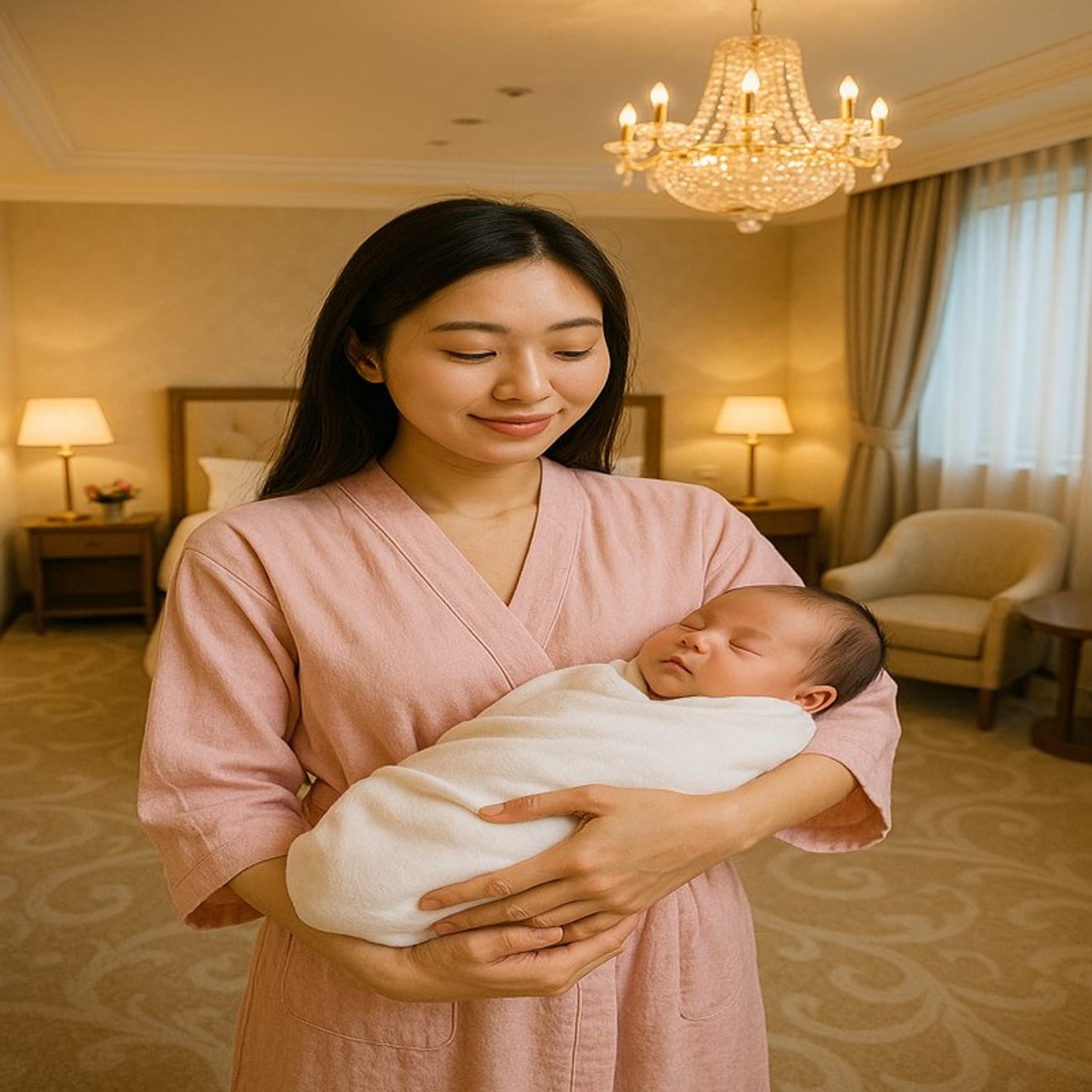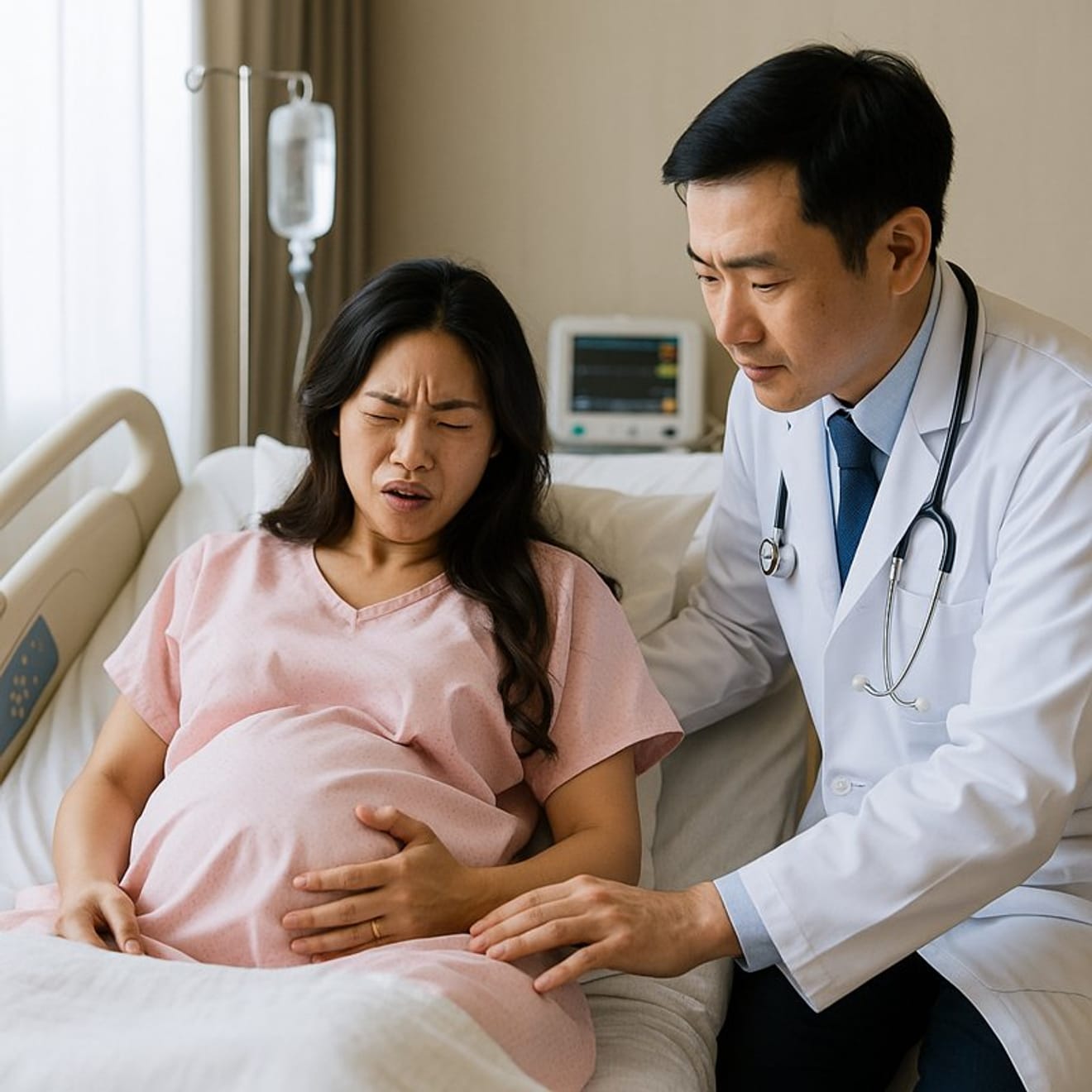- Korean Alley Cafe Tour: 7 Hidden Instagram Hotspots in Hongdae, Yeonnam, and Seongsu
- On May 21, 2025, we introduce 7 Instagram hotspot cafes in the Hongdae, Yeonnam, and Seongsu areas of Seoul, and propose a Korean alley cafe tour.
Shock to Foreigners! Is it true that Koreans go to a ‘hotel’ after giving birth?
“They go to a hotel as soon as they are discharged from the hospital after giving birth?” At first, I thought it was a joke. But as it turned out,it wasn’t a hotel, but a ‘postpartum care center’, and that place was not just a recovery space but the core of Korean childbirth culture and the answer to the question, “Why are Korean mothers strong?”
Korean childbirth culture is a culture system that is meticulously and systematically designed, from prenatal examinations, selecting a hospital for childbirth, postpartum care, seaweed soup culture, to the roles of family members.
That's why foreigners often search on Google: 'Korean childbirth culture', 'postpartum care center prices', 'Why do Koreans eat seaweed soup', 'How many weeks of postpartum care', 'Husband's participation in childbirth culture', 'Postpartum massage Korea', etc. This culture is not just unique, but the values and family views of Korean society contained within are very interesting.
In this article,
✔ Postpartum care center experience
✔ Hospital system before and after childbirth
✔ Seaweed soup and postpartum food
✔ The roles of Korean families
✔ Differences seen from a foreigner's perspective
I'll honestly and delicately organize all of this. Korean childbirth culture, the love and detail within it, let's experience it together now.

Experience of Korean Childbirth Culture: From Postnatal Care Centers to Seaweed Soup
1. Prenatal care and hospital system – “They take care of you this thoroughly?”
In Korea, when pregnancy is confirmed, most women immediately enter a routine of obstetrics and gynecology care. Once a month → once every two weeks → weekly check-ups, the content of the examinations changes depending on the gestational age, and they also provide ultrasound pictures every time.
And what especially surprises foreigners is the ‘Happy Mom Card’ provided by the government. This is a voucher card that the Korean government provides to pregnant women to support their medical expenses up to a certain amount. Even foreigners with visas can apply if they have a certificate of entry and exit facts.
The details of the treatment are also very meticulous. In addition to the fetal anomaly test, they listen to the fetal heartbeat, compare growth rates, check amniotic fluid levels, and even conduct an NST test to check if the fetus is receiving oxygen well.
And at each hospital, you can make appointments and check medical records in real-time with an app, and this digital system is much faster and more intuitive than in the United States or some European countries.
Also, the thoughtful consideration in daily life, such as parking areas for pregnant women, priority seating for pregnant women on the subway, and the provision of pregnancy congratulatory kits including diaper samples and wet wipes from public institutions, is a point of感动 (gamdong, emotion) for foreigners.
“In Korea, from the moment you get pregnant, you feel like someone is walking with you by your side.”
2. Childbirth hospitals and delivery methods – “You can choose and book delivery?”
One of the first things to do when preparing for childbirth in Korea is to choose a childbirth hospital. There are various options depending on the mother's situation and preferences, such as large obstetrics and gynecology specialty hospitals, hospitals affiliated with postpartum care centers, or university hospitals.
And what’s even more surprising is that cesarean sections can be booked! You can set the due date in consultation with medical staff and be admitted and deliver on that date. Natural childbirth is also possible, but elective cesarean sections are very common depending on the situation.
You can also tour the hospital before delivery, and the hospital provides a list of items to bring with you. Delivery rooms are usually single rooms, and everything, such as epidural anesthesia, intravenous fluids, and whether or not to have an episiotomy, is explained and given as an option in advance.
From a foreigner's perspective, this systematic childbirth management system is truly impressive.
However, the culture of husbands accompanying their wives in the delivery room is still limited. Some hospitals allow husbands to enter the delivery room and be together, but most of them wait in the lobby or family waiting room.
“It feels like you're really being managed here, even for childbirth. Childbirth felt more like a ‘project’ than an ‘event’”
3. Postpartum Care Centers – “Going to a place more luxurious than a hospital!”
The ‘highlight’ of Korean childbirth culture is undoubtedly the postpartum care center. After being discharged from the hospital after giving birth, most mothers stay at a care center for 2 to 3 weeks to recover their bodies and minds.
Postpartum care centers literally offer
• Single rooms for mothers only
• Dedicated baby care team
• Massage programs
• Balanced meals
• Baby feeding education
• Various health recovery education
Everything is operated with a ‘care’ focus.
Luxury care centers have hotel-level rooms, aromatherapy massages, Sitz bath programs, and even real-time CCTV of newborns.
The cost is an average of 2 to 4 million won for two weeks, and luxury care centers can exceed 5 million won, but they provide an environment that allows you to focus on the mother's recovery and early childcare education.
This system feels truly amazing to foreigners.
“I feel like I’m still treated with care even after giving birth.”
“Why isn't this kind of care system in our country?”

Experience of Korean Childbirth Culture: Postnatal Care Center and Seaweed Soup
4. Postpartum food and seaweed soup culture – “Seaweed soup every day? There was a reason”
In Korea, there is a tradition of mothers eating seaweed soup every day after giving birth. At first, you might wonder, “Why seaweed soup?” but when you hear the reason, everyone nods.
• Seaweed is rich in iron → helps with recovery from bleeding
• Iodine content → uterine contraction and recovery
• Warm broth → promotes blood circulation and stimulates breast milk production
In addition, nutritious meals for mothers, such as black sesame porridge, beef porridge, Samgyetang (chicken soup with ginseng), and dried pollack soup, are provided every meal, and spicy and stimulating foods are strictly excluded.
Postpartum care center menus provide 3 meals + 2 snacks cooked with care every day, and each meal is considered as “recovery meals for mothers”, which comes across as a very special culture to foreigners.
“In Korea, I feel like someone is taking care of me ‘diligently’ even after giving birth.”
5. The role of the family – “Childbirth with the husband and mother-in-law”
In Korea, childbirth is celebrated with the family. It is not just the mother's job, but a culture involving the husband, mother-in-law, and the mother of the wife.
The husband can take paternity leave (10 days paid), parental leave (up to 1 year), and nowadays, there are many cases where they wait together at the hospital on the day of delivery or enter the care center together after discharge.
In addition, the culture of the mother-in-law or the wife's mother coming to the mother's house after leaving the care center to help with food and childcare still exists a lot.
This culture is surprising to foreigners, and sometimes there is a reaction that it “can be burdensome,”but on the other hand, they are deeply moved by the fact that childbirth is accepted as a family matter.
“I was really impressed that Korea considers childbirth as ‘something we do together.’”
6. Korean childbirth culture seen from a foreigner's perspective – “A country of consideration and detail”
From before childbirth to care, Korean childbirth culture is not just a ‘medical system’. It's a process that embodies the philosophy of life and the emotions of the community.
At first, you might think, “Why is it so complicated?”, “Isn't this too much?” But as time goes on, as your body recovers, and as you see your baby's smile, you come to realize.
“Oh, Korea is really a country that loves mothers.”
In the United States or Europe, they often go home three days after giving birth and have to do everything themselves, but Korea has a culture where the whole society tries to take responsibility for the time ‘after childbirth’.
That's why many foreigners search on Google: “Korean postpartum care center reviews”, “Reasons for seaweed soup”, “Korean childbirth costs”, “Postpartum care culture”, etc. It's not just curiosity, but it contains the desire to know the warm details of Korea.

Korean Childbirth Culture - From Postnatal Care Centers to Seaweed Soup
Korean childbirth culture centers on 'people'
From pregnancy to childbirth, and postpartum recovery—Korean childbirth culture is not just a medical system. It is “how to warmly welcome a life”, the Korean society's unique answer.
From a foreigner's perspective, the postpartum care center, seaweed soup diet, family care, and childbirth hospital reservation system may seem unfamiliar and new at first. But as time goes on, you feel it.
“How deep and elaborate is the consideration for mothers in Korea.”
That's why the related search terms like ‘Korean childbirth culture’, ‘postpartum care center reviews’, ‘reasons for seaweed soup’, ‘Korean childbirth system’, ‘postpartum care’, and ‘husband's paternity leave culture’ are increasing on Google these days.
Through this article, I hope to convey the warmth of Korea to someone and the courage and peace of mind about childbirth to someone else.
The postpartum care center, the seaweed soup, and the family, they all started for one reason.
“Because both the mother and the baby are precious.”
Comments0